6 Days 5 Nights
Daily Tour
50 people
___
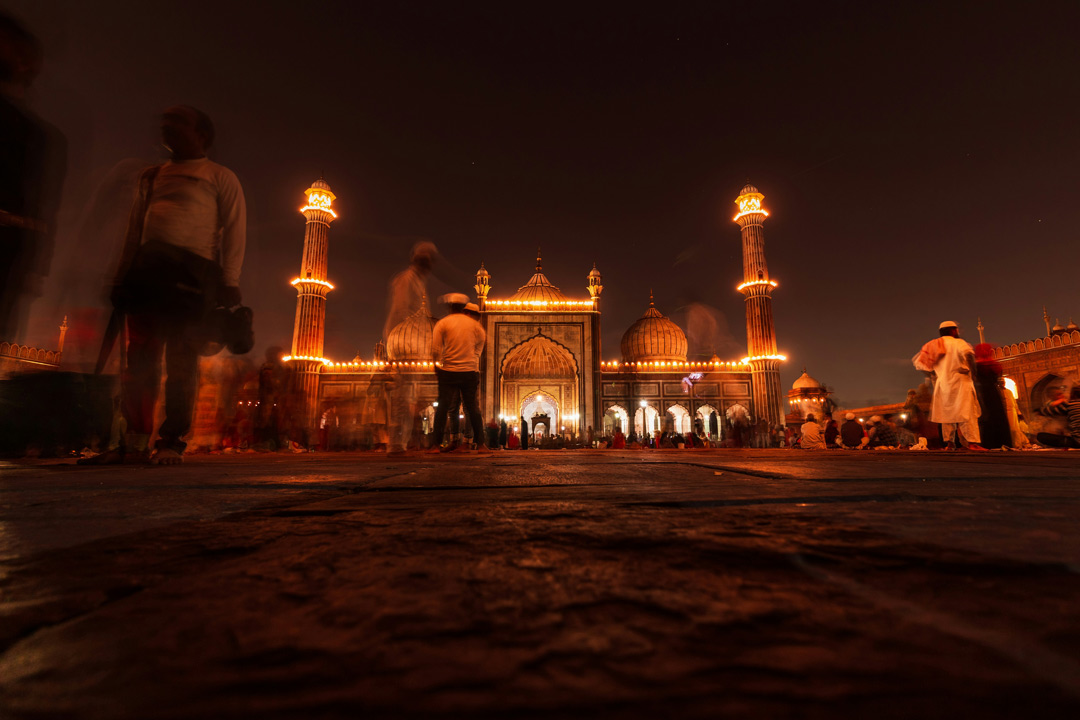
Dist: 529 km | Time: 12 to 16 hr | Altitude: 300 m to 2050 m
In the evening, you’ll be picked up from Delhi by cab or Volvo AC bus for your journey to Manali. The drive will take approximately 10-16 hours overnight, allowing you to rest and sleep comfortably during the trip.
Meals: Nil
Night: Journey by Volvo Bus or Cab
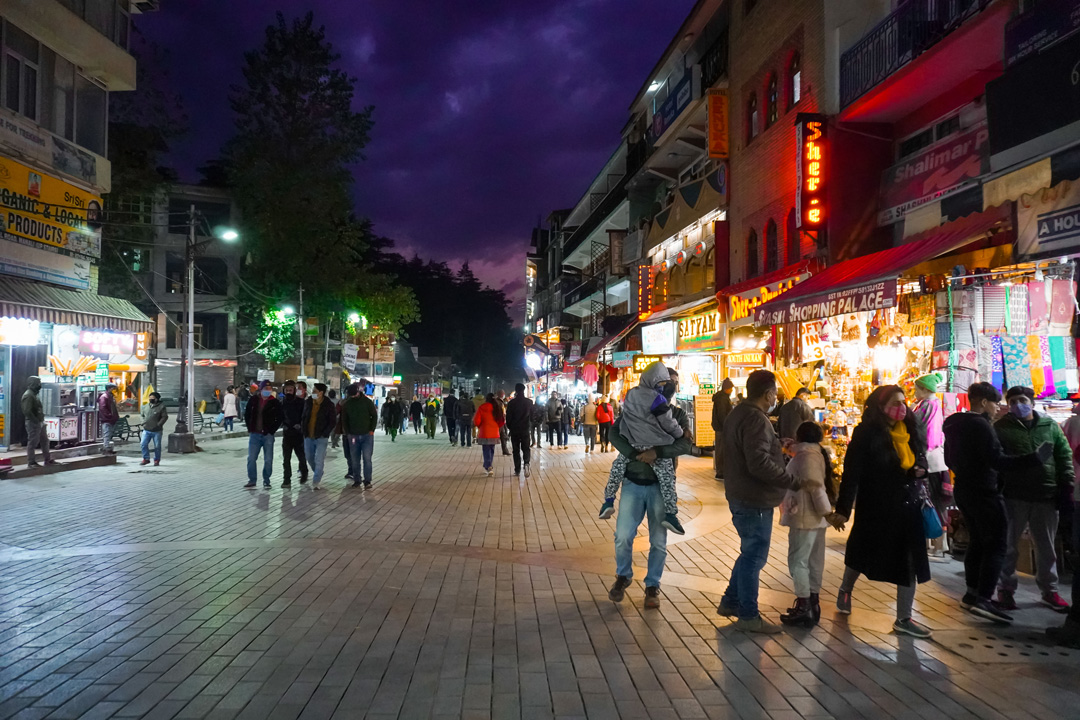
Check-In: 11:00 am | Sightseeing: 2:00 pm to 6:00 pm
Upon arriving in Manali, you’ll be transferred to your hotel. After freshening up, explore Van Vihar and the Museum of Himachal Culture & Folk Art. Next, visit Hadimba Temple and stroll through Mall Road to experience the vibrant atmosphere of Old Manali.
Meals: Dinner
Night: Stay at Hotel in Manali
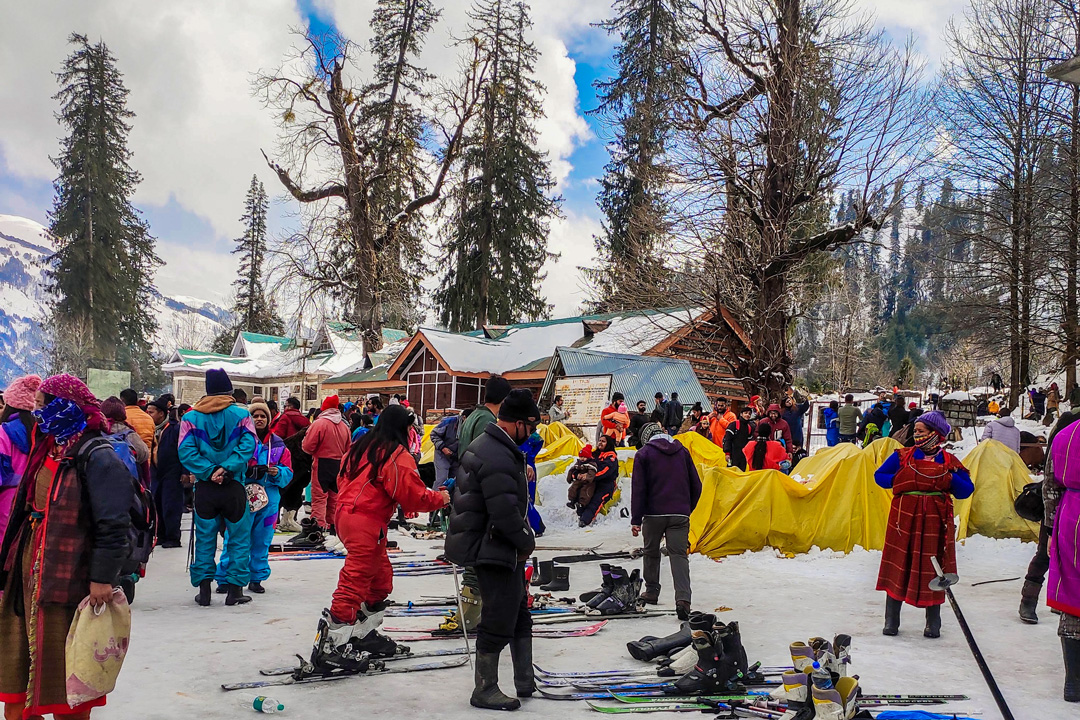
Sightseeing Time: 10:00 am to 6:00 pm
After freshening up, I set off for Solang Valley. Here, you can enjoy various adventure activities (at additional cost), such as paragliding, skiing, zip-lining, yak riding, tube sliding, and quad biking. Return to your hotel in the evening to relax.
Meals: Breakfast and Dinner
Night: Stay at Hotel in Manali
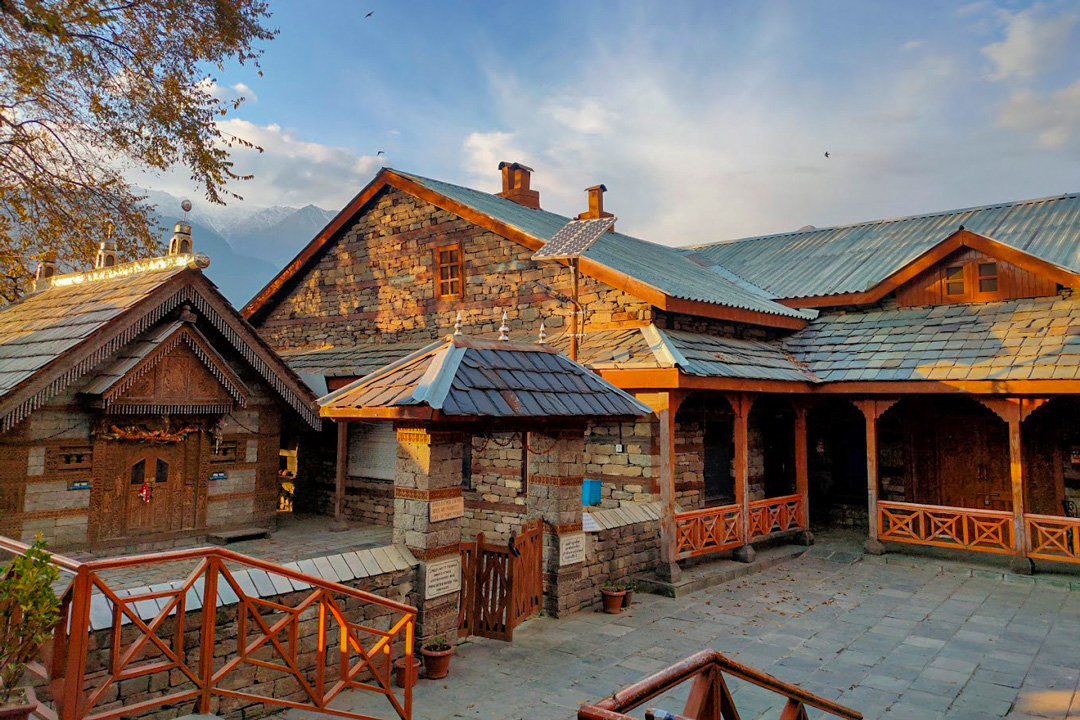
Sightseeing Time: 10:00 am to 6:00 pm
Today, visit the Naggar Castle, a stunning medieval mansion built by Raja Sidh Singh of Kullu in the 15th century. En route, stop at Sajla Waterfall. In the evening, return to your hotel in Manali.
Meals: Breakfast and Dinner
Night: Stay at Hotel in Manali
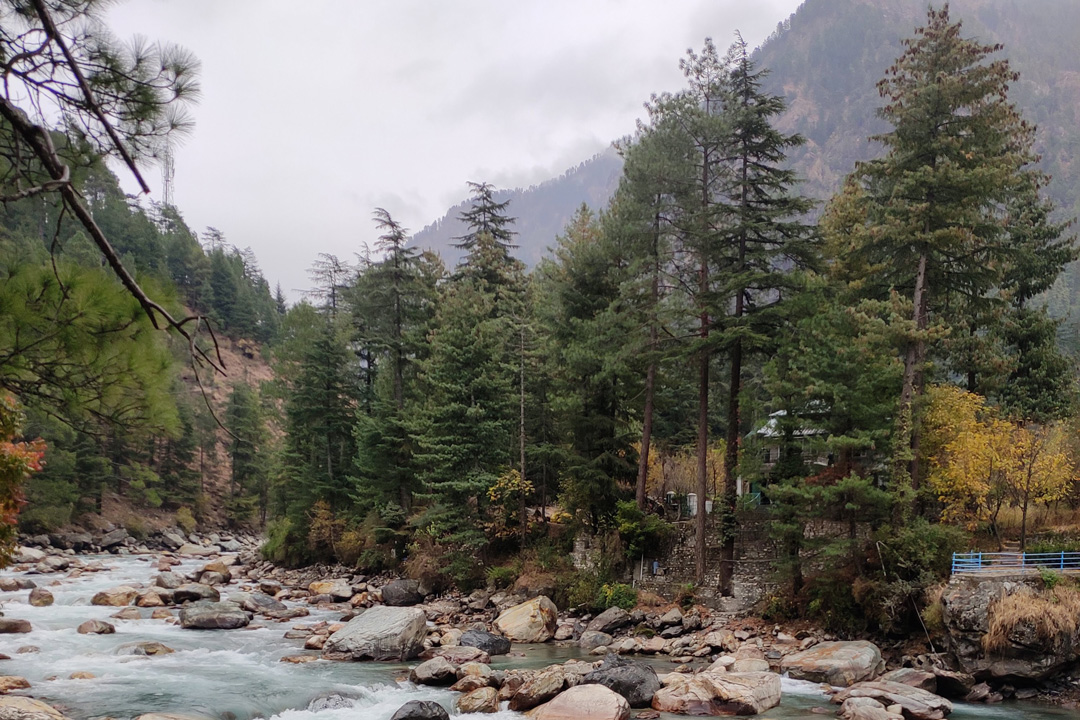
Dist: 81 km | Time: 2 to 4 hr | Altitude: 2050 m to 1580 m
Enjoy the morning in Manali before heading to Kasol. On the way, halt at Kullu and participate in optional thrilling activities like paragliding or river rafting (at additional cost). In the evening, arrive in Kasol, a peaceful village along the Parvati River.
Meals: Breakfast, Dinner
Night: Stay at the Hotel in Kasol
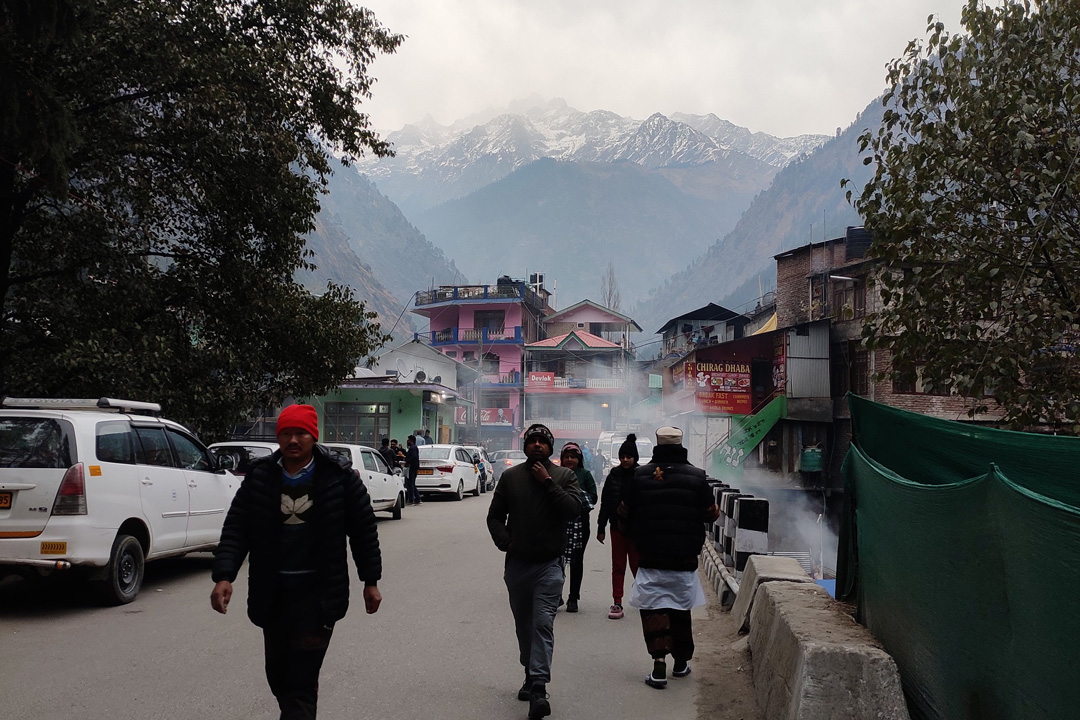
Dist: 12 km | Time: 2 to 3 hrs | Altitude: 1560 m to 1760 m
After freshening up, visit the Manikaran Temple, renowned for its natural hot springs. The Hindus believe that Manu recreated human life in Manikaran after the flood, making it a sacred area. Take in the Parvati River's scenic views before returning to your hotel in the evening.
Meals: Breakfast and Dinner
Night: Stay at the Hotel in Kasol
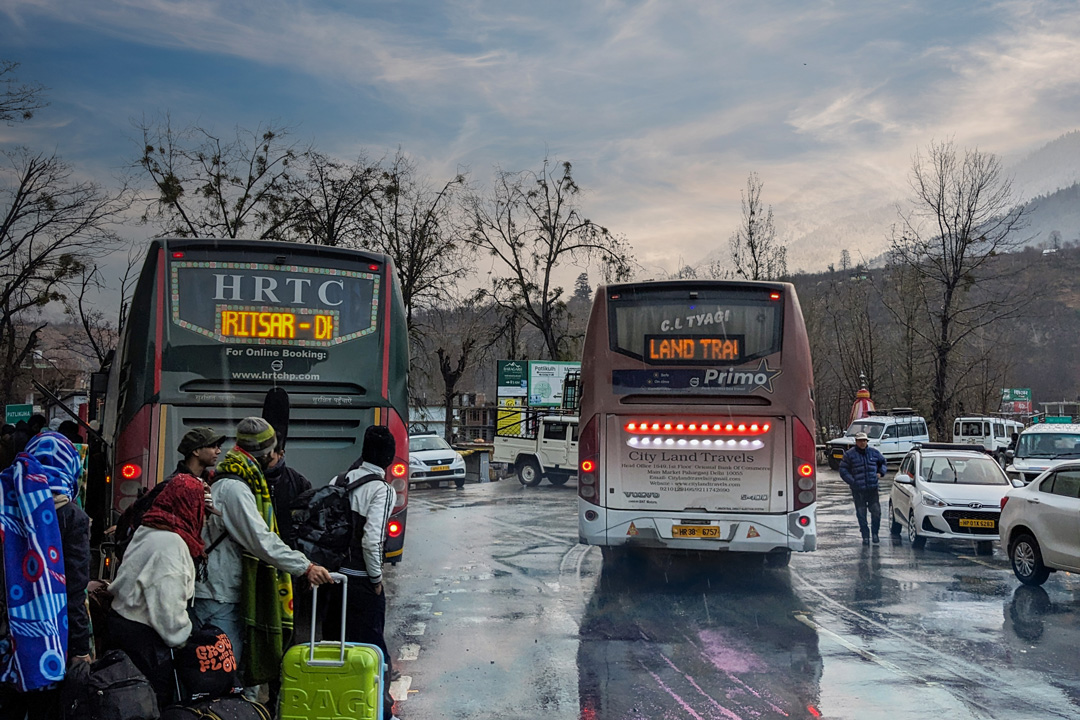
Checkout: 11:00 am | Depart: 3:00 to 7:00 pm
After checking out of the hotel, explore the local market of Kasol. Kasol is a shopper’s paradise, with vibrant flea markets offering various unique items, from handicrafts and souvenirs to woollen clothes and dream catchers. Late in the evening, depart for Delhi.
Meals: Breakfast
Night: Journey by Volvo Bus or Cab
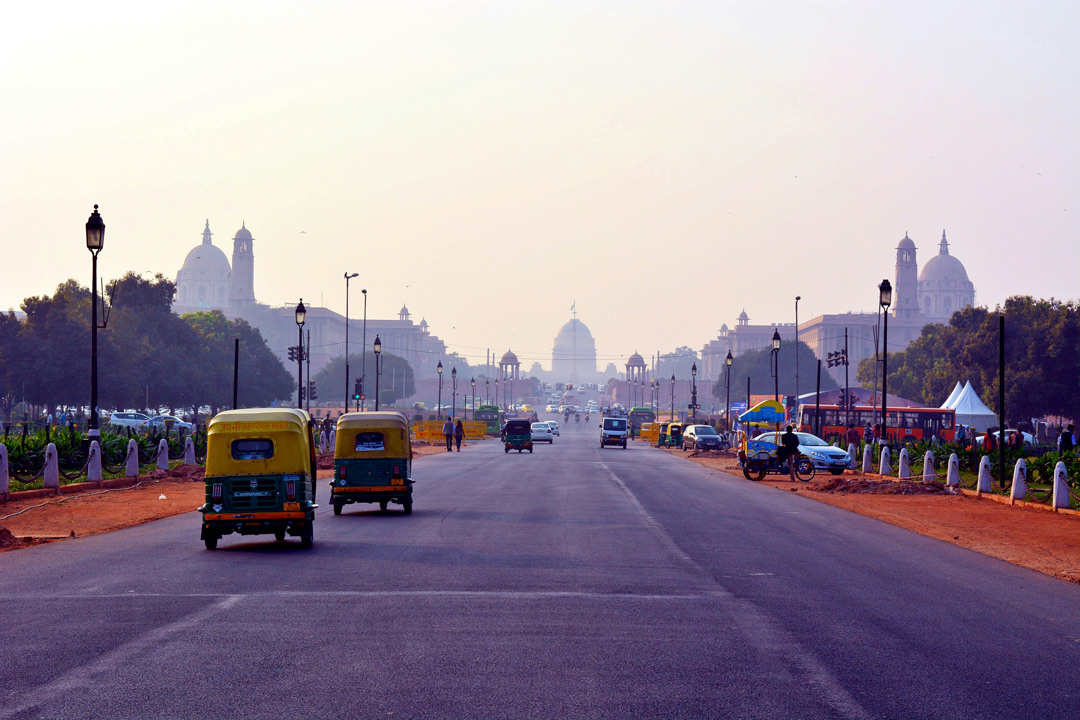
Dist: 489 km | Time: 10 to 14 hr | Altitude: 1580 m to 300 m
After a scenic drive, arrive in Delhi in the morning. Concludes your memorable journey through Manali, Kullu, Kasol, and the Parvati Valley, leaving you with cherished memories and a refreshed spirit.
Meals: NA
Night: NA
| Location | Places to visit |
| Manali | Mall Road Manali, Old Manali Van Vihar, Club House, Old Manali, Solang Valley, Jogini Waterfall (small trek), Vashisth Temple, Naggar Castle, Sajla Waterfall |
| Kullu and Kasol | Parvati River, Manikaran Temple and Gurudwara, Manikaran Hot Water springs. |
Notes:
Add on Local Sightseeing
Notes:
We understand that plans can change, but the booking amount is non-refundable due to the costs we incur in preparing for your tour or activity. If you wish to reschedule for a different date, we'll adjust it to the same package, providing you with the necessary flexibility. If you have paid the total amount but cancelled the package. You will be provided with a refund, as mentioned below:
Tours or activities may be cancelled due to unforeseen events beyond our control, weather conditions such as heavy rain or storms, or government restrictions like sudden closures of specific areas. In such a scenario, we will provide an alternate tour or activity. However, no refunds will be provided.
About Manali Kasol Tour
Manali: A Journey Through History and Beauty
Manali, located in the Kullu district of Himachal Pradesh at an altitude of 2,625 meters, is steeped in history and mythology. The town’s name is derived from “Manu-Alaya,” meaning the abode of Manu, the Brahmin lawgiver, who is believed to have found refuge here after a great deluge, as per Hindu mythology. Legends link Manali to the Ramayana and Mahabharata periods, with associations to sages like Vashishtha and Vyasa and heroes like Bhima and Arjuna. The river Beas, flowing through Manali, is said to have derived its name from the sage Vashishtha, carried ashore by its sacred waters.
Manali’s historical significance continues with the 17th-century Raja Jagat Singh, who brought the statue of Lord Raghunath Ji to the region, establishing a cultural and spiritual legacy that remains today. The British, attracted by its pleasant climate and stunning landscapes, transformed Manali into a popular hill station in the 20th century, introducing roads, churches, and apple orchards, which became vital to the local economy.
Manali, known as the “Valley of Gods,” is a spiritual haven, offering picturesque landscapes, thick forests, snow-capped mountains, and a rich cultural heritage. Visitors can explore ancient temples like the Hidimba Temple, which is associated with the Pandavas, or participate in various adventure activities, all while feeling the spiritual energy permeating the valley.
Kasol: The Mini Israel of India
Kasol is a picturesque village located at an altitude of 1,640 meters in the Parvati Valley of Himachal Pradesh. Due to its popularity among Israeli tourists, Kasol is frequently called the “Mini Israel of India.” It is a haven for backpackers, trekkers, and nature lovers. The village is surrounded by lush forests, snow-clad mountains, and the gurgling Parvati River, making it an ideal spot to enjoy nature.
Kasol is a heaven for nature lovers and a melting pot of cultures. The village uniquely blends Indian and Israeli cultures, with cafes serving Israeli cuisine, including Shakshouka, Bourekas, and Lemon cake. This cultural fusion adds a distinctive flavour to the village’s charm, making it a must-visit for those intrigued by diverse cultures.
Nearby, the spiritual site of Manikaran Sahib Gurudwara, known for its hot springs, attracts pilgrims from around the world. Kasol also hosts rave parties and trance music festivals, adding to its reputation as a youthful, energetic destination.
Whether you seek spiritual solace, adventure, or a place to unwind amidst nature, Manali and Kasol offer a unique history, culture, and natural beauty. The adventure opportunities in these destinations will surely excite the thrill-seeker in you.
During The Manali Kasol Tour. Both The Destination is Best to witness the festivals, scenic Landscape, Activities:
During The Manali Kasol Tour – Fair and Festivals
Kullu-Manali and Kasol offer a vibrant valley experience, rich in cultural celebrations that captivate visitors with their colourful displays, lively music, and traditional folk dances. The region has numerous fairs and festivals annually, showcasing a mesmerising blend of decorations, bustling markets, and delicious local cuisine. The festive atmosphere creates an enchanting ambience that draws tourists from across the globe. If you’re keen to immerse yourself in these cultural festivities, planning your Kullu-Manali Kasol trip to coincide with these events is worth planning. Below is a list of Manali’s key fairs and festivals, complete with essential details.
When: 2nd week of January
Duration: 5 days
Where: Manali
Manali comes alive in the 2nd week of January for the much-anticipated Winter Carnival. This vibrant festival brings together artists and cultural groups from all over the country, turning Manu Kala Kendra into a hub of activity. Locals and tourists gather to enjoy classical and folk dances, group songs, fancy dress, one-act plays, and street performances. The carnival concludes with exciting competitions like the Mr. Manali Contest and the Winter Queen Contest.
Spring Festival/Basantotsav/Pipal Jatra
When: 28th to 30th April
Duration: 3 days
Where: Kullu
The Spring Festival, Basantotsav or Pipal Jatra, is celebrated in the Dhalpur Grounds of Kullu. The Himachal Pradesh government recognises it as a state-level festival. It features traditional dances and winter sports competitions. Legend has it that the king used to sit under the Pipal tree with his courtiers to watch the dances, a tradition that continues to draw large crowds to Kala Kendra, an open-air theatre.
When: October or November
Duration: 1 day
Where: Kullu
Kullu’s Dusshera is a unique celebration distinct from the rest of India. Instead of burning effigies, the festival features a grand procession of Lord Raghunathji, who is placed on a massive chariot and pulled by ropes from Dhalpur Maidan. Idols from surrounding temples join to pay homage to the deity in what is known as the “running of the gods.” The procession is led by the Kullu Raja and village deities, making it a spectacular event.
Hadimba Devi Fair
When: Spring season
Duration: 1 day
Where: Kullu
The Hadimba Devi Fair is a significant festival held in the spring at the Hadimba Devi Temple in Manali. The temple is beautifully decorated, and the locals are engaged in rituals throughout the day to honour Hadimba Devi, the wife of Bheema. The highlight of the fair is the traditional dance performances by the local community.
Shamshi Vishu
When: 1st day of Baisakh
Duration: 1 day
Where: Khokhan Village, Kullu
Shamshi Vishu is celebrated in the remote village of Khokhan in Kullu Tehsil. The villagers, who consider themselves descendants of ancient sages, celebrate by taking the goddess out of the temple on the first day of Baisakh for worship. After prayers, she is returned to the temple in a ceremonial procession.
Mela Bhuntar
When: June to July
Duration: 3 days
Where: Bhuntar
Mela Bhuntar is a three-day festival held in the tiny hamlet of Bhuntar, about 49 km from Manali. Express your gratitude to the deities for their blessings, which help flourish the harvest every year.
Doongri Forest Festival
When: May
Duration: 1 day
Where: Kullu
The Doongri Forest Festival occurs in the scenic Van Vihar area near the Doongri forest. Primarily organised by local women, the festival is dedicated to pleasing Hadimba Devi, the wife of Bheema. Women dress in vibrant costumes and perform traditional dances, attracting tourists who visit during May and June.
Losar Festival
When: January end to March
Duration: 15 days
Where: All of Himachal Pradesh
The Losar Festival is a significant celebration among the tribal communities in Himachal Pradesh. Originating in pre-Buddhist Tibet, Losar marks the Tibetan New Year. The festival features Tibetan opera, prayer ceremonies, and the Chaam Dance, a vibrant performance with costumes and masks that depict the triumph of good over evil. The dance is also known as the “Devil Dance” due to the eerie masks worn by the performers.
Lohri
When: 13th January
Duration: 1 day
Where: All of Himachal Pradesh
Although a prominent Punjabi festival, Lohri is widely celebrated in Himachal Pradesh, including Manali. The festival marks the beginning of the Rabi crop harvest. People gather around bonfires, dressed in traditional attire, to sing, dance, and offer puffed rice to the fire, praying for a bountiful harvest.
Baisakhi
When: 13th and 14th April
Duration: 1 day
Where: All of Himachal Pradesh
Baisakhi, also known as Vaisakhi, is celebrated across Himachal Pradesh to mark the harvest season. The festival is characterised by fairs, wrestling matches, dancing, and archery competitions, making it lively and memorable. Joining in the festivities is a great way to enhance your vacation experience.
Best Time To Visit During The Manali Kasol Tour
While you can embark on a trip any time of the year, it’s essential to be mindful of the local climate. In Kullu-Manali Kasol, summers are delightful and attract many visitors, including families, honeymooners, and adventure enthusiasts. Winters, though cold and snowy, are equally popular, offering a picturesque, serene escape. The monsoon season, while less frequented due to the unpredictable weather, still draws in those captivated by the lush, rain-soaked landscapes. However, the weather can shift dramatically, and while some thrill-seekers enjoy the wild nature of the mountains, it can also be dangerous, sometimes leading to severe or even fatal injuries. Below is a guide to help you plan your visit to Kullu-Manali based on the weather patterns throughout the year.
Summer (April to June):
Summer in Manali kicks off in April and extends to the end of June. During this period, temperatures rise, reaching a warm 15 to 25 degrees Celsius in May. With warm days and cool nights, this season is ideal for adventure sports such as paragliding and river rafting. Snow is typically found only at higher altitudes.
Monsoon (July to September):
Following the summer, the valley is refreshed by the monsoon rains, bringing life to the landscape with the smell of wet earth and lush greenery. Temperatures during this time range from 10 to 22 degrees Celsius. The increased water flow creates new waterfalls and hiking paths, but constant rains also make river and stream levels more volatile.
Autumn (September):
Autumn in Manali is a brief but beautiful season. As the monsoon retreats and winter approaches, the weather remains mild, with minimal rainfall and cooler temperatures at night.
Winter (October to February):
Winter grips Manali from October to February, with temperatures often dipping below freezing. Daytime highs remain between 5 to 7 degrees Celsius. Frequent snowfall blankets the area in white, making it a magical winter wonderland. This season is perfect for winter sports like skiing, snowboarding, and snow scooter rides. If you don’t mind the cold, winter is an enchanting time to visit.
Spring (March to April):
Spring follows winter, ushering in a more comfortable climate as the snow melts. The temperatures rise to between 7 and 15 degrees Celsius. The valley bursts into colour with blooming wildflowers, offering a romantic and rejuvenating atmosphere.
Best Times to Visit Manali for:
Honeymooners: Anytime except during the monsoon (mid-July to mid-September).
Snow Lovers: October to February, when fresh snow is most likely.
Adventure Seekers: April to June for activities like river rafting, trekking, and paragliding, and October to February for snow sports.
Snow Time Table For The Manali Kasol Tour
| Month | Snowfall | Rohtang Pass |
| December-January | Fresh Snowfall in Manali | Closed |
| February-March | Fresh Snowfall in Manali | Normally Closed |
| April | Rare | Normally Closed |
| May | Rare | Typically Opens (mid-May) |
| June | Rare | Mostly Open |
| July | Rare | Monsoon, Landslide Risk |
| August | Fresh Snowfall: Rare | Monsoon, Landslide Risk |
| September | Fresh Snowfall: Rare | Open for Most Days |
| October | At Rohtang, Heavy | Open for Most Days |
| November | At Solang | Can Close Anytime |
How To Reach
Manali is a popular destination, attracting tourists worldwide, particularly from October to January and March to June. Chandigarh is the closest city to Manali in terms of both rail and air connectivity. We can handle all your travel arrangements, including booking flights or trains from your city of departure to Chandigarh. From there, we offer a range of transportation options, including personal cars, tempo travellers, and Volvo buses, to ensure a comfortable journey to Manali. Pre-book your preferred mode of transport with us, and we’ll take care of the rest, providing a smooth and reliable travel experience in and around Manali. You can also plan visits to nearby destinations like Shimla, Dalhousie, Manikaran, Dharamshala, and Kasauli from Manali, a gateway for trips to Leh.
By Air: The nearest airport to Manali is in Chandigarh, approximately 315 km away. Direct flights are available from cities such as Kolkata, New Delhi, Mumbai, Chennai, Hyderabad, and Bangalore. We can arrange your flight tickets, and upon arrival, you’ll enjoy a comfortable ride to Manali in our luxury cars or tempo travellers, with an experienced driver to guide you throughout your trip.
By Train: The closest rail connection is at Chandigarh railway station. Train tickets can be arranged from any city to Chandigarh. Upon arrival, travellers can select from a range of SUVs, hatchbacks, and sedans or choose a luxurious Volvo bus for their journey to Manali. Pre-booking transportation allows travellers to take advantage of special discounts and enjoy a hassle-free trip.
By Road: We can organise your train or flight tickets to Chandigarh, where our driver will be waiting with your pre-booked car to take you to Manali safely and comfortably. Reserve our personal vehicles or tempo travellers in advance to ensure a hassle-free trip at the best rates. We’ll handle all the logistics so you can enjoy your time in Manali.
Local food During The Manali Kasol Tour
Manali
Visitors to Manali can indulge in the region’s flavorful local cuisine, deeply rooted in the agricultural traditions of the surrounding valleys. The primary ingredients used in Manali’s dishes include locally grown crops like paddy, maise, kodra, and salyara. These form the base of traditional meals, often consisting of steamed rice, curries, madra (a curd-based dish), pulses, and raita (a blend of mustard, dry fruits, and sweet rice). Special occasions and festivals are marked by preparing dishes such as vada, bhatora, and patrodu, typically cooked by a Brahmin cook, known as ‘Boti’, and served on leaf plates.
Dairy products are a staple in the local diet, with hot milk, curd, ghee, butter, lassi, and milky tea commonly found in every household. Manali is also known for its homemade wines like Chakti and Lugri, which are made from barley and red rice.
Pickles are another highlight, particularly those made from green apples and lingad, local wild asparagus. These unique flavours are widely available in local grocery stores, especially during summer.
Manali boasts many vegetarian and non-vegetarian restaurants, including the region’s renowned trout. For a quick bite, visitors will find momo and gyoza stalls lining the streets, while the Club House in Old Manali is a popular spot for family brunches. For those travelling to nearby Kasol, a diverse range of Israeli dishes is also available, reflecting the influence of the area’s significant Israeli tourist population.
It’s advisable to be cautious when trying street food, particularly chicken dishes sold by hawkers on Mall Road, as food safety can be a concern. This is especially important for travellers planning to continue on the Manali-Leh Highway, where facilities can be sparse.
Introduction to Kasol’s Culinary Scene
Kasol, a popular destination in Himachal Pradesh, offers a rich culinary experience that reflects its status as a global traveller hub. The local food scene in Kasol features traditional Himachali dishes made with native ingredients and traditional cooking methods. Additionally, the village has many Israeli eateries catering to the many Israeli tourists who visit, offering diverse food options.
Traditional Himachali Cuisine During the Manali Kasol Tour
Dham: Dham is a festive meal from Himachal Pradesh traditionally served during weddings and religious festivals. It includes rice, lentils (dal), kidney beans (rajma), curd, and sweet dishes like halwa, all prepared with specific spices that give each dish a unique flavour. Typically served on a leaf plate, Dham offers an authentic culinary experience. In Kasol, visitors can enjoy Dham at local eateries and guesthouses, making it a must-try for anyone wanting to taste traditional Himachali cuisine.
Siddu: Siddu is a popular local food in Himachal. It is made from wheat flour and yeast and filled with mashed potatoes, walnuts, or poppy seeds. The dish is steamed, giving it a soft, fluffy texture. It is often served with clarified butter (ghee) and chutney made from green chillies, garlic, and coriander. This dish is a staple in many Himachali homes and can be found at roadside eateries in and around Kasol.
Babru: Babru is a stuffed, deep-fried bread from Himachal Pradesh, filled with black gram paste. This crispy snack is often enjoyed with tamarind chutney or potato curry. Babru is a delightful treat for those exploring the local food scene in Kasol.
Patande: Patande, a traditional Himachali pancake, is crafted from wheat flour, milk, and sugar. Often enjoyed for breakfast with butter or honey, Patande is a simple yet delicious dish loved by locals and tourists.
The Influence of Israeli Cuisine During The Manali Kasol Tour
Due to the large number of Israeli tourists, Kasol, known as “Mini Israel,” has embraced its Israeli visitors by establishing numerous cafes and restaurants that serve genuine Israeli cuisine, which has become an integral part of the local dining scene.
Shakshuka: This well-loved Israeli dish features poached eggs simmered in a zesty tomato and bell pepper sauce flavoured with cumin and paprika. Served with fresh bread, it is a standard breakfast option in Kasol’s Israeli cafes.
Falafel: Falafel, which consists of deep-fried balls of ground chickpeas or fava beans, is a critical element of Israeli cuisine. In Kasol, this savoury treat is commonly served on pita bread, fresh vegetables, and tahini sauce, providing a fulfilling and nutritious meal.
Hummus and Pita: Hummus, a rich and creamy dip crafted from chickpeas, tahini, olive oil, lemon juice, and garlic, is a cornerstone of Israeli cuisine. In Kasol, it’s typically accompanied by freshly baked pita bread, olives, and pickles, offering a tasty and satisfying snack or meal.
Israeli Salad: Israeli salad is a refreshing side dish in Israeli cafes. It combines finely chopped tomatoes, cucumbers, onions, and bell peppers and is dressed with lemon juice and olive oil. This fresh and tangy salad is often paired with falafel and hummus.
Momos: Momos, originally from Tibet, is a popular street food in Kasol. These steamed dumplings, filled with vegetables, chicken, or pork, are served with a spicy chilli sauce, making them a favourite among tourists and locals.
Thukpa: Thukpa, a Tibetan noodle soup, has gained popularity in Kasol. Made with vegetables, meat, and noodles and seasoned with various spices, Thukpa is a warming and nourishing dish, especially suitable for Kasol’s cold weather.
Pizza: In Kasol, numerous cafes and restaurants offer wood-fired pizzas featuring various toppings ranging from the traditional Margherita to inventive choices like smoked trout. These pizzas, made with fresh, locally sourced ingredients, cater to the international palate and are a must-try.
Pasta: Kasol offers a variety of Italian cuisine, with many restaurants serving pasta dishes. Visitors can enjoy everything from simple aglio e olio to rich, creamy carbonara, all made with fresh ingredients and a local twist.
To Book the Manali Kasol Tour Package, Contact local tour operator Uncia Trails.
Both Manali and Kasol offer unique experiences. Manali is known for its stunning landscapes, adventure activities, and vibrant cultural scene, while Kasol is celebrated for its serene vibe, Israeli cuisine, and tranquil setting. Your choice depends on whether you prefer a bustling hill station or a quiet village retreat.
Kasol is renowned for its stunning natural beauty, nestled at the River Parvati and River Beas confluence. It features picturesque coniferous forests, crystal-clear mountain streams, and a serene village atmosphere. Parvati Valley, where Kasol is located, is famous for its lush greenery, gushing waterfalls, dense pine and deodar trees, and hot springs, offering a peaceful retreat amid its natural splendour and the cultivation of charas (hashish).
In Kasol, visitors can find a variety of unique souvenirs:
Semi-precious Stones: Armbands, neckbands, and pendants made from vivid semi-precious stones.
Bob Marley T-Shirts: Trendy shirts and merchandise featuring Bob Marley.
Chillums: Colorful chillums, bongs, and psychedelic glow-in-the-dark tees.
Himachali Caps: Beautiful hand-knitted woollen caps with traditional craftsmanship.
Dream Catchers: Intricate dream catchers are available in various designs and sizes.
Hand-Knitted Woolen Clothes: Traditional woollen garments and accessories.
Prayer Wheels: Symbolic of optimism and good luck, available in different sizes and designs.
Psychedelic Paintings: Immersive paintings reflecting the vibrant experiences of Kasol.
The journey from Delhi to Manali typically takes around 11 to 13 hours by road, depending on traffic and road conditions.
Adventure activities are not usually included in the standard Manali-Kasol tour package but may be added based on your chosen package.
During the tour, you can visit the Atal Tunnel, Sissu, and Rohtang Pass, but availability depends on the season and weather conditions.
Yes, you can customise the itinerary or add extra sightseeing spots. Contact Uncia Trails for more details.
In Manali, summers are warm (15-25°C), monsoons are wet, and winters are cold, with temperatures dropping below freezing and frequent snowfall. In Kasol, summers are mild, monsoons bring heavy rains, and winters are chilly with occasional snowfall.
The best time to visit Manali is from March to June and October to February, while Kasol is most enjoyable from March to June and September to November.
Manikaran Sahib is located in Kasol.
|
Manali Kasol Packages |
Day/Night |
Price |
|
Manali Kasol Tour Package |
3 Night/4 Days |
₹7,500 |
|
Manali Sissu Kasol Tour Packages |
3 Night/4 Days |
₹7,500 |
|
Manali Kasol Package |
4 Night/5 Days |
₹8,500 |
|
Manali Kasol Tosh Package |
4 Night/5 Days |
₹8,500 |
|
Manali Kasol Kheerganga Tour |
4 Night/5 Days |
₹8,500 |
|
Manali Kasol Tosh Kheerganga Tour |
5 Night/6 Days |
₹10,500 |
|
Manali Kasol Jibhi Tour |
4 Night/5 Days |
₹8,600 |
|
Manali Kasol Tour |
5 Night/6 Days |
₹9,900 |
No, Kullu and Kasol are different. Kullu is an enormous valley and town, while Kasol is a miniature village within the Parvati Valley, known for its distinct atmosphere and charm.
You can travel from Manali to Kasol by taking a local bus or hiring a taxi, and the journey typically lasts 1.5 to 2 hours.
Yes, Manali is generally colder than Kasol.
Kasol is known for its vibrant shopping scene, scenic walks along the Parvati River, delicious Israeli food, the spiritual Manikaran Sahib, riverside camping, and treks to Kheerganga.
Kasol is frequently called the "Mini Israel" of India because of its substantial Israeli community. Many Israelis visit Kasol after mandatory military service, seeking a peaceful retreat. This influx has given the village a distinctly Israeli ambience.
Kasol is a better choice than Mussoorie. It provides a distinctive mix of picturesque landscapes, a lively Israeli influence, and outdoor adventures, catering to travellers seeking a relaxed yet adventurous experience.
For a Manali-Kasol trip, contact Uncia Trails for personalised planning and booking.
Manikaran is known for its hot springs, reputed for their healing properties, and its important religious sites, such as the Manikaran Sahib Gurudwara and the Ram Temple. The town is also renowned for its scenic beauty, situated along the Parvati River.
The mystery of Manikaran often refers to the legend surrounding its hot springs. According to local folklore, the springs have mystical origins linked to Lord Shiva and Parvati. One famous story suggests that Parvati lost a jewel from her ear while bathing in the hot springs, which fell into the river. In his quest to recover the jewel, Shiva caused the hot springs to appear, and their heat was believed to be the result of the jewel's divine energy. The unusual combination of hot springs in a cold region and their reputed healing properties add to the area's allure and mystique.
The Hidimba Devi Temple is famous for its unique architectural style and connection to the epic Mahabharata. Dedicated to Hidimba, a character from the Mahabharata, the temple is renowned for its distinctive pagoda-style architecture and the intricately carved wooden façade. It is also set in a picturesque location amidst a cedar forest, adding to its spiritual and scenic appeal.
Hidimba Mata, or Hidimba Devi, is a revered figure in Hindu mythology, particularly in the epic Mahabharata. She was a rakshasi (demoness) who lived in the forest near Manali. According to the legend, Hidimba fell in love with Bhima, one of the Pandava brothers. Despite her demoness heritage, she was known for her beauty and strength.
The story says Hidimba's brother, Hidimb, was a powerful demon who threatened the Pandavas. To protect his family, Bhima defeated Hidimb, and in gratitude, Hidimba approached Bhima. The two married, and Hidimba later gave birth to a son named Ghatotkacha, who played a significant role in the Kurukshetra War.
Hidimba Mata is worshipped in the Hidimba Devi Temple in Manali, where she is revered for her strength, devotion, and protection of the Pandavas. The temple, set amidst a cedar forest, reflects her connection to nature and her enduring legacy in the region.
Mall Road in Manali is famous for its vibrant shopping, dining, and entertainment options. It features a variety of shops selling local handicrafts, woollens, and souvenirs, along with numerous cafes and restaurants offering diverse cuisines. The road is a popular spot for strolling and experiencing the local atmosphere.
Manali is famous for shopping for woollen clothes, traditional Himachali handicrafts, and souvenirs like handmade jewellery, local artefacts, and vibrant shawls. The Mall Road is the primary shopping destination for these items.
Solang Valley is famous for its adventure activities, such as paragliding, skiing, and zip-lining. Its scenic beauty, with snow-capped mountains and lush green meadows, attracts many visitors.
Solang Valley is covered in snow from December to March, but snow conditions vary each season.
There is no entry fee; only charges for activities apply.
Vashisht Temple is famous for its ancient hot springs, known for their therapeutic properties. These draw visitors who seek a natural spa experience. The temple is also dedicated to the sage Vashisht and features intricate wood carvings, making it a significant cultural and religious site in Manali.
The Vashisht Temple in Manali is over 4,000 years old, making it one of the region's most ancient and historically significant temples.
The cost of staying in Manali and Kasol starts at around ₹1,000, depending on the type of accommodation you choose.
Kullu and Manali are popular destinations in Himachal Pradesh, but Manali is particularly famous for its adventure activities. Manali is about 40 km from Kullu, making it easy to visit both places during your trip.
Paragliding in Manali starts at ₹700, with prices varying based on the duration and specific flight location. Popular spots like Solang Valley offer packages that may include professional guidance, equipment, and safety measures, with prices varying accordingly.
The cost of the ropeway in Manali is ₹700 per person. The ropeway takes you around 10,000 feet above the ground, with 19 cabins carrying up to 1,200 passengers. It covers a distance of 1.3 km at a speed of 6 m/s and offers breathtaking views of Solang Valley.
Parachuting in Manali typically starts at around ₹700, depending on the duration and package chosen.
Leave a review